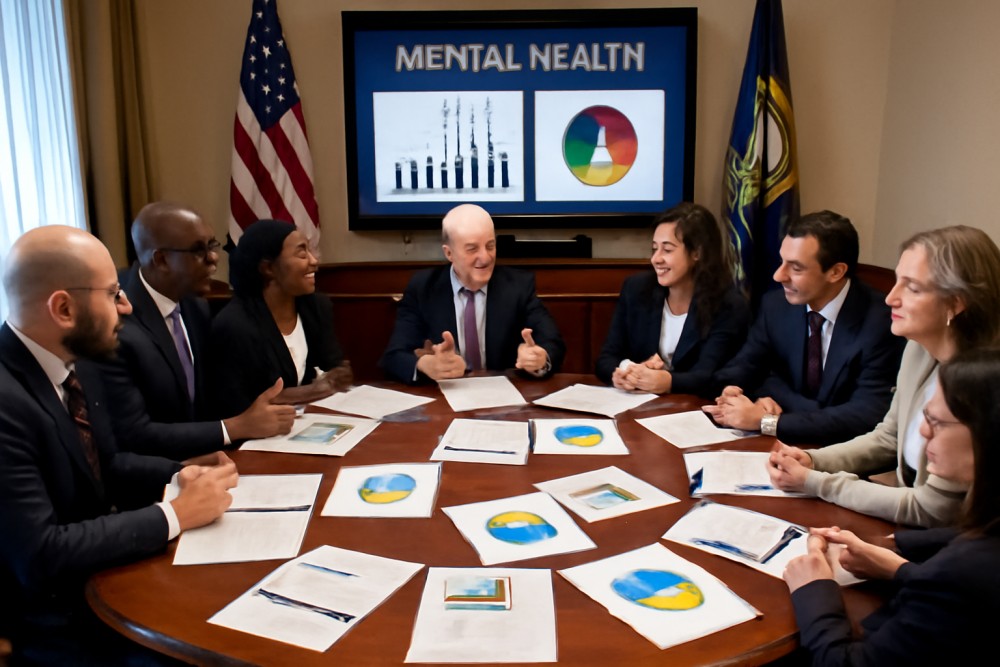Former President Donald Trump recently introduced a policy proposal seeking to address America’s dual crises of addiction and Mental Health Issues, which has attracted serious commitments and criticism. Essentially, the proposal suggests permitting authorities to mandate treatment of persons suffering from substance use disorders or serious Mental Health Issues, including when they are not willing to get help.
Proposed Enforcements: The Scope of Mental Health Issues
Trump’s proposal contains a real concern for our nation’s runaway opioid epidemic, growing homeless population and increasing untreated . It is hoped, supporters cite, that if an individual can be treated before they hit rock bottom (and possibly injure or kill themselves or someone else), society can eliminate threats to life, preserve living, decrease crime, and maintain some semblance of order. Proponents argue that by sometimes forcing people to obtain help, as voluntary care has left many with Mental Health Issues and without options until there is a tragedy; that some “tough love” can actually be “love.”
The Issue: Rights Versus Results
Critics caution that, while providing additional pathways, these approaches introduce serious civil liberties issues and may do little to impact long-term health outcomes for those with Mental Health Issues. Mental health advocates suggest that mandated treatment often fails to address the underlying causes of illness or addiction, and often undermines public trust in the system of Mental Health Issues. Concerns exist that people may be deprived of self-determination and subjected to facilities with questionable techniques or civil rights violations. The debate about how to best support those with continues.
Researchers also underscore that individuals who pursue therapy or rehab for their Mental Health Issues of their own volition tend to be more successful clinically compared to those mandated into treatment, as “voluntariness is the strongest predictor of outcomes” according to a leading mental health researcher. Researchers also note that systemic barriers—underfunded treatment centers, lack of affordable housing, and stigma—have a larger impact on recovery from Mental Health Issues than mandated treatment.
Racial or Community Concerns Related to Mental Health Issues
The proposal has sparked extra confusion regarding disparate impacts on minority communities, the homeless, and those already marginalized by the criminal justice system, all of whom are at greater risk of Mental Health Issues. Some worry that mandated treatment programs may serve as a tool of discrimination or targeting rather than a genuine intervention leading to help or healing from Mental Health Issues.
The Bigger Picture: What might happen next for Mental Health Issues?
With a problematic response from actors and unproductive attempts at creating bridge and intervention pathways, we believe the non-profit sector, mental health activists, family lawyers, and other stakeholders should come together to consider collectively how and when they will take direct action to advocate for change in the areas of Mental Health Issues. The UDP is a critical turning point that may raise awareness and provide an added step towards advocacy and action regarding Mental Health Issues.
Frequently Asked Questions –
Q: What is “mandated treatment” in this instance?
Mandated treatment is the power to force a person with serious or substance use troubles into designated treatment, even if they do not volunteer to go.
Q: What is beneficial about this?
Proponents believe it could decrease fatalities, minimize repeat crises, and keep neighbourhoods safer, by allowing interventions early and upfront, especially when people with are not ready, or able to, seek out help voluntarily.
Q: What are the potential risks or concerns?
Opponents note civil liberties, potential abuse, harm caused by forcing someone into care, and chances of success are typically lower when someone with is not willingly engaged in recovery.
Q: Who stands to be most negatively impacted by this policy?
Unsheltered people, people with chronic or addiction, and possibly certain minority communities, depending on how the policies are enacted and safeguards are ensured.
Q: What do experts recommend?
Many advocates for prioritizing enhancements to voluntary resources for those with Mental Health Issues: accessible and affordable treatment, stigma reduction strategies, housing and…







